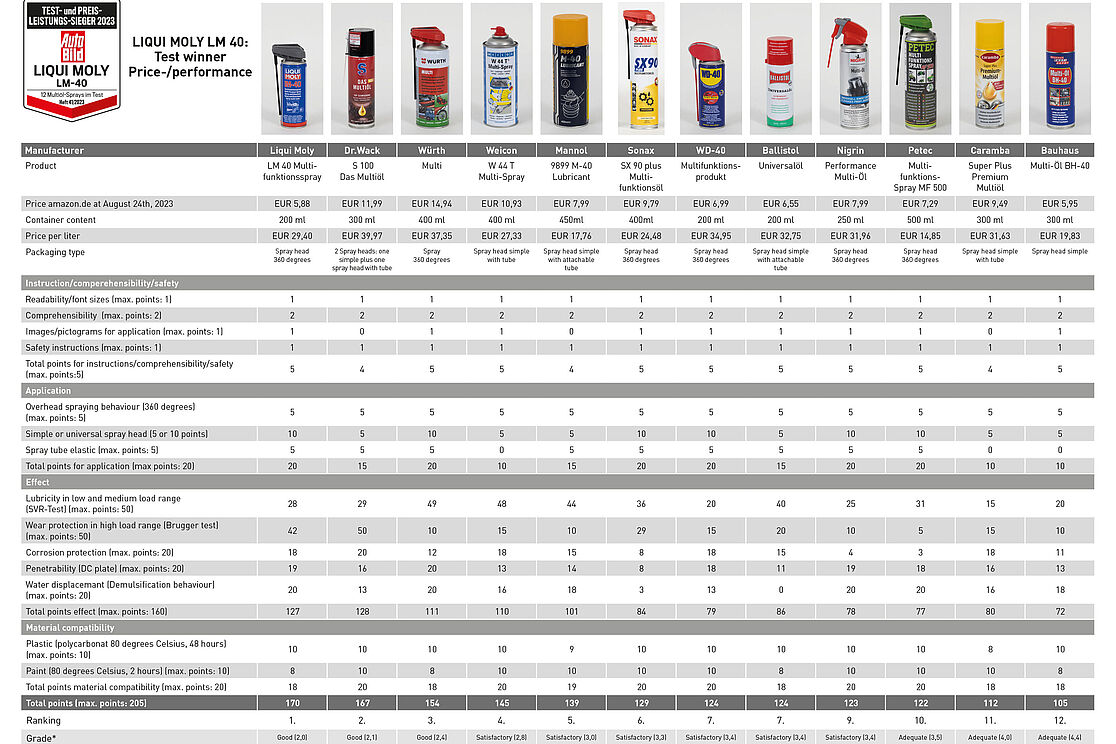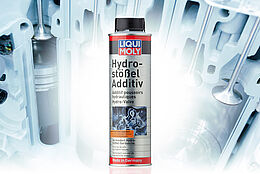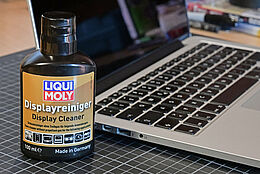- 10/23/2023
Big win for LIQUI MOLY LM 40: Multi-purpose oils in a major practical test

Whether on the car, in the workshop or in the household, multi-purpose oils are very popular as a universal aid. When the door lock catches, the screws are stuck on the defective tailpipe, the front door creaks or the lawnmower refuses to start, the bicycle chain urgently needs lubrication – however diverse the tasks may be, universal oils promise to be the solution in all these cases. But are the oils really worth it?
The test experts at Germany’s largest car magazine tested twelve multi-functional oils in spray cans in the categories of instructions, safety, ease of application, effect and material compatibility. The result is disappointing. Of the twelve multi-purpose oils, only two fulfill all the promises made on the label.
LIQUI MOLY LM 40 Multi-Purpose Spray is test champion and price/performance winner
With the grade “good”, the multi-functional spray LM 40 from LIQUI MOLY is the test champion and price/performance winner. LM 40 Multi-Purpose Spray is a true all-round product that meets all the criteria for a good multi-oil in the test: It has good penetrability, displaces water perfectly, is gentle on materials, and protects well against rust. The lubricity also leaves nothing to be desired; the wear protection is very good. And all this at a top price/performance ratio of less than six euro for the 200 ml can.
In second and third place in the results table, the products “S100 The Multi Oil” from Dr. Wack and the offering from Würth were also rated “good”. S100, also an all-round product, scores with good results in terms of wear and corrosion protection, lubrication effect and water displacement as well as flawless material compatibility. Würth’s multi-purpose oil also leaves nothing to be desired when it comes to lubricity, but weakens when it comes to wear and rust protection.
Good lubricity but weak wear protection
Nine products, none of which are really multi-functional, land in the following places. The overall grade of “satisfactory” was awarded to the oils Weicon W 44 T Multi-Spray (good lubricity but weak wear protection), Mannol 9899 M-40 Lubricant (lubricates well, hardly any protection against wear), Sonax SX 90 Plus Multifunctional (good lubricating effect, otherwise mediocre performance), WD-40 Multi-Use (disappointing for lubricating effect and wear protection), Ballistol Universal Oil (good lubricating effect, but useless as contact spray) and Nigrin Performance Multi-Oil (medium lubricating effect, no rust and wear protection).
With the rating “adequate” in the last three places, the Petec multi-function spray MF 500 (acceptable in terms of lubricating effect, worst performance for rust and wear protection), Caramba Super Plus Premium multi-spray (good in terms of corrosion protection, poor lubricating effect and wear protection). The Bauhaus Multi Oil BH-40 (suitable as a contact spray, weak lubricating effect, very low protection against wear and rust) is the poorest performer in the test.
Test procedure:
In a specialist laboratory, the experts tested all multi-purpose oils for their properties regarding instructions, safety, ease of application, effect and material compatibility. Wear protection is an important topic. A vibration/friction wear tester is used here. The tribometer test, abbreviated to SRV, allows high-precision measurements of friction and wear. The lower the friction coefficient and the smaller the worn surface, the better the oil protects against wear. Another test point is the lubricating effect. The lubricity of the oils is determined using the so-called Brugger test. The corrosion protection is tested with the salt spray test, in which the metal sheets are evaluated according to the size of the rust-free surface and the degree of corrosion damage. Other important test points are the penetrating capability and water displacement of the oils. The last test criterion is material compatibility. The paint compatibility is tested on black-painted test sheets. In the polycarbonate compatibility test, special test plates are checked and evaluated for stress cracks after the end of the test.






